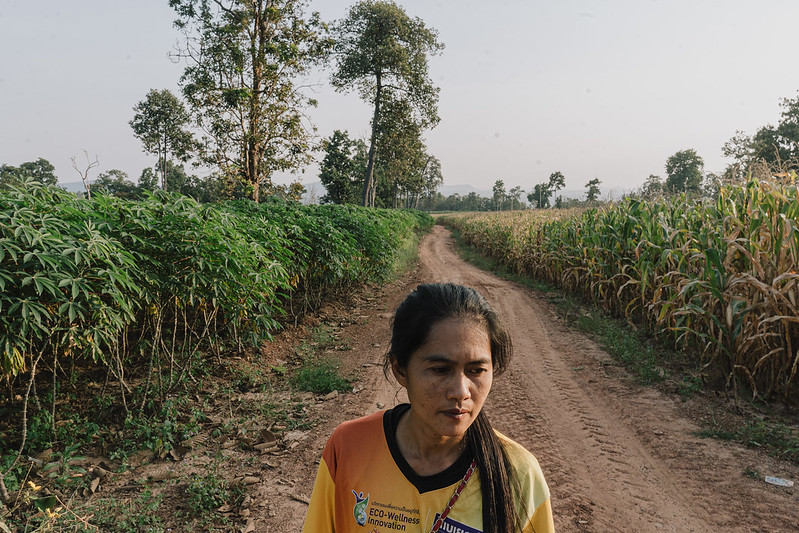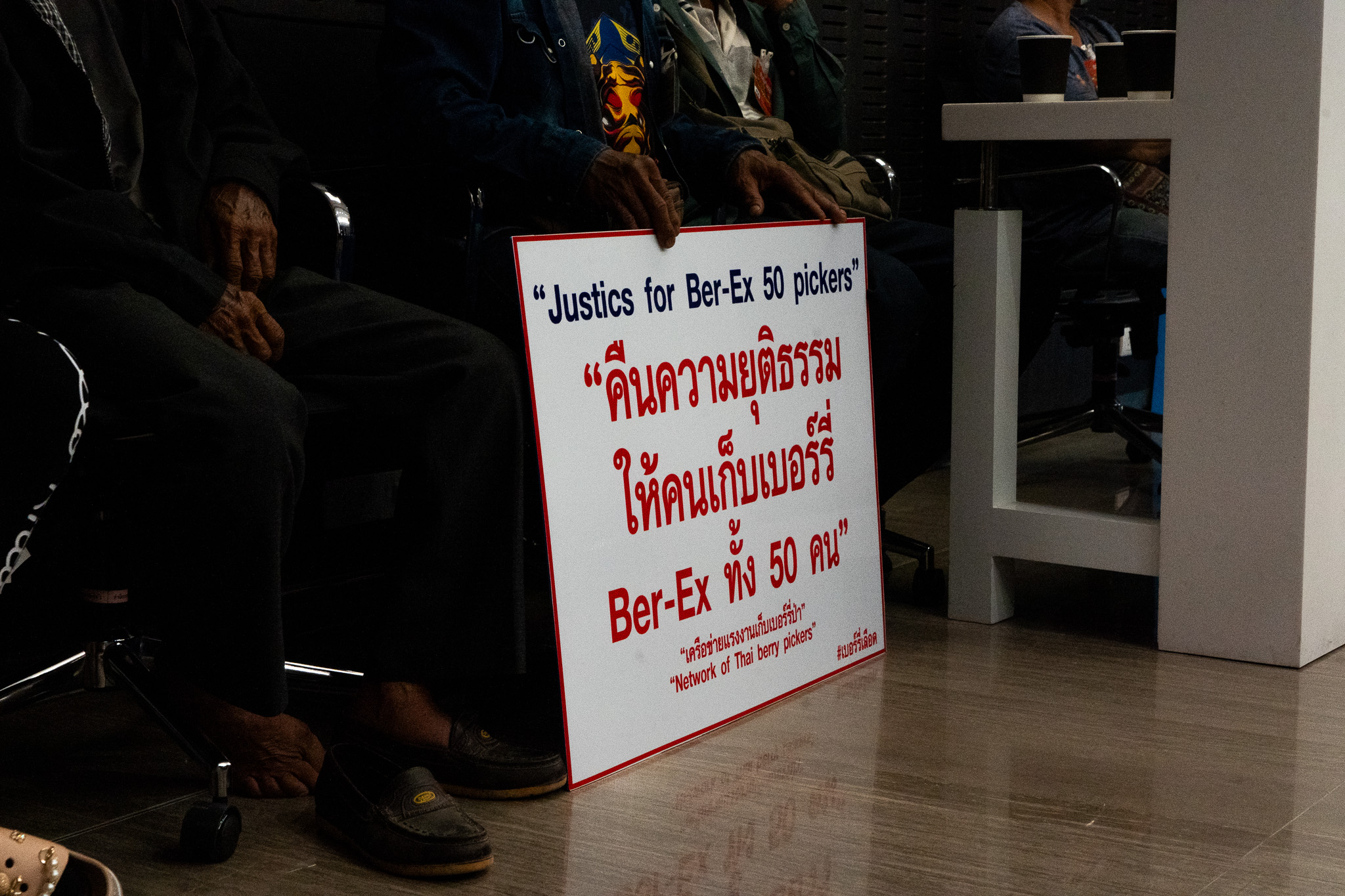
By Duantip Khanrit
The most visible youth protests in the Northeast have been associated with leading universities like Dao Din in Khon Kaen and the Torch group in Ubon Ratchathani. Students from the more numerous Rajabhat Universities have largely been absent.
Charges against Rajabhat University students in Udon Thani and refusal of university administrators to allow students to use the campus to protest tamped down any involvement of that university in the city’s protests. Rajabhat University students in Ubon Ratchathani have similarly been denied any space to exercise their rights.
But some Rajabhat University students in the region have been organizing and involved in the current protests.
In one, some Roi Et Rajabhat University students have forged a group on campus despite discomfort of the university’s administrators. In others, like Sisaket Rajabhat University, a broadminded dean has opened space for discussions about the current political situation to take place. In Surin and Maha Sarakham, engaged students have had to join with others outside their campuses to organize protests.
The Isaan Record has had a chance to talk with Rajabhat University students throughout the region. Engaged students see themselves as part of a national movement fighting against authoritarianism in Thailand. But as the vast majority of engaged students from Rajabahat universities study education, it is not surprising that their criticism extends not just to questioning the role of Rajabhat universities, but Thai education in general.
Stirrings of political activism in Roi Et Rajabhat University
Flash mobs throughout Thailand popped up spontaneously after the Constitutional Court ruled to dissolve the opposition Future Forward Party in the end of February 2020. Some surprised administrators in Isaan’s Rajabhat universities were unable to prevent protests on their campuses.
One group, Palang Naksuksa phua Prachatipatai [Student Power for Democracy] at Roi Et Rajabhat University (RERU), has succeeded in establishing itself on campus. The group was set up by two determined friends, Kotchakorn “Kaew” Bualamlam and her friend, “Sarah” (not her real name), both 20, who study education. The duo also formed their own band in August, Sakoi Patiwat [Revolutionary Chicks].
Unlike many Rajabhat which are located in the provincial city, RERU is in a different district. The large, new campus is located in a forest and seems cut off from its surroundings. The Student Power for Democracy group coordinates with the Unyoked Roi Et [Blot Aek] network in the provincial city, but as RERU is 35 kilometers away, the group has not always been able to make it to the city for protest activities there.
The group has benefitted by visits from activists like Pai Dao Din, and its groups head, Kaw had a chance earlier to attend a training organized by the former Future Forward Party.
Many Rajabhat universities were former teacher’s colleges and the teaching faculties at each, Kaew and Sarah say, are ultra-conservative and concerned about the image of the institution. Some group members have been intimidated. Authorities visited Sarah’s parents in a neighboring province, warning them about their daughter’s activities.
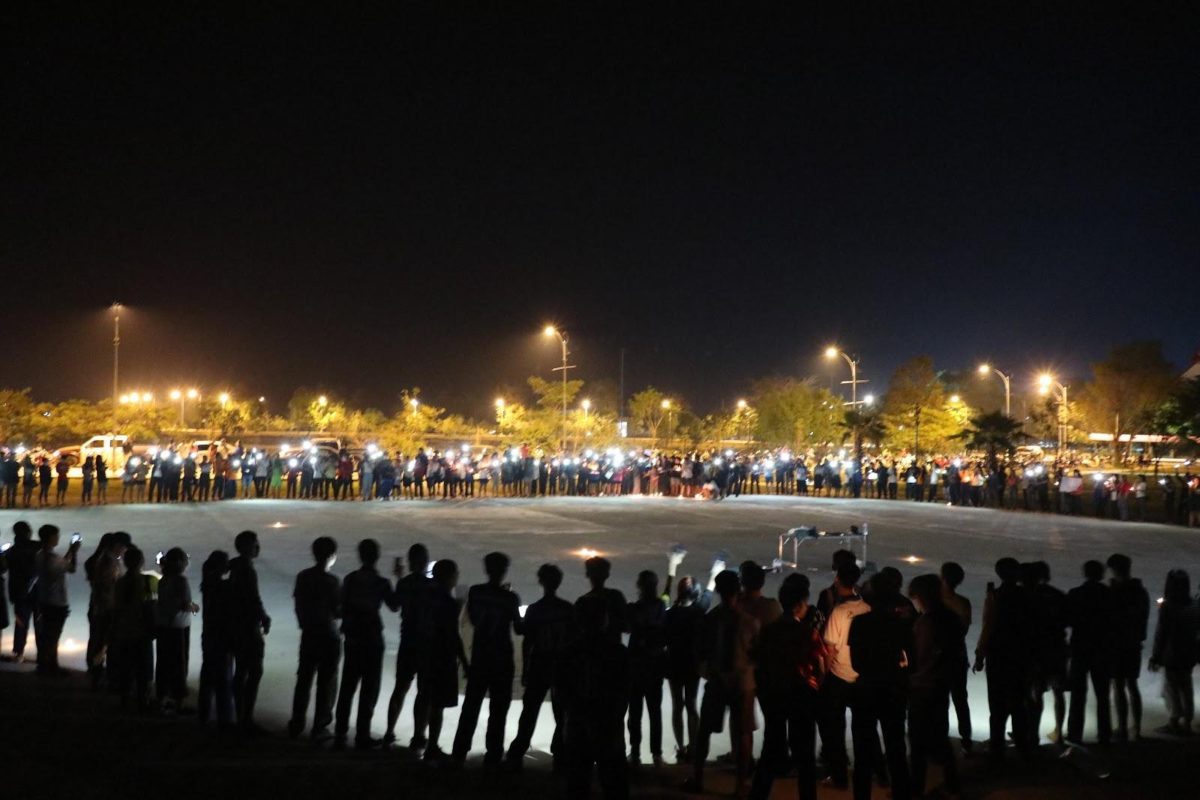
A candle-lighting rally at Roi Et Rajabhat University in response to dissolution of the Future Forward Party on Feb. 20, 2020. Photot: Palang Naksuksa phua Prachatipatai (Student Power for Democracy)
RERU is different from other Rajabhat universities in that it’s so new. Kaw says that there is no history of political activism on campus. When her group carried out its first action in late February, she says, “the event was considered brand new and the first political activity that’s ever happened at this institute.”
After organizing a rally speech to support the three demands issued by the People’s Party 2020, the group has gained a larger number of members. However, the protesters were criticized and taunted by lecturers who called them “extremists.”
INSERT PHOTO OF PLOY (Bob ought to have one, however bad)
Kaew wants the university to do better and “provide activities that are more intellectual than a freshmen’ beauty contest.” She hopes that instead the university can support having “academic forums that provide a space for students to express their political beliefs.”
The Thai education system, Kaw argues, tends to cultivate students to be grateful or to be indebted to their teachers. The teachers, therefore, are placed significantly superior than other figures.
Kaew places hope in the current political activism will lead to a reconsideration of the rules that limit what education students can and can’t do. The current movement, she says, might “eliminate social norms that ban teachers from expressing political opinions.”
“I dislike this kind of the norm. I think it promotes inequality,” she says, “I’ve always been dreaming to see real equality in our society, where we’re truly equal.”
The group, though, is not stopping at larger issues. They have started examining problems that need to be addressed on campus. A few well-timed posts quickly repaired a key road on campus.

Sahassawas Maikhami (left), sophomore from the Faculty of Education, Rajabhat Maha Sarakham University, holds a banner in front of the university president’s office at the “Anti-Dictatorship Stage” rally held in Rajabhat Maha Sarakham University on Oct. 4, 2020. Credit: RMU for Democracy
Students at Maha Sarakham Rajabhat University have had a harder time
Student activists Maha Sarakham Rajabhat University (MSRU) formed the group “MSRU for Democracy” in September 2020, in solidarity with the People’s Party 2020.
The group started with placing notices inviting students to come together to campaign for democracy around the MSRU campus. Later, the group helped co-manage the Maha Sarakham University Democracy Front and began carrying out activities outside the campus.
Sahassawas Maikhami, a sophomore at the Faculty of Education and a member of MSRU for Democracy, says his group is not fighting for just himself and his compatriots, but also for the younger students who will be the nation’s future.
“I want to see every educational institute be democratic,” says Sahassawas, “where everyone owns their own right to speak.” He says that previously, students at MSRU or more often than now “repressed by university authorities” who say that students “need to be disciplined or obey the teachers. This is such an outdated framework. Therefore, the authoritarian structure should be lessened and classrooms and schools should be democratized.”
“We want to see change in society,” he says. Teachers have a special role in Thai society and can be a vessel for democratizing society.
“Children’s democracy” in schools,” he says, has been “limited to the in-class voting of classroom representatives. But teachers can do more. “Since teachers are considered to be figures who are intimate with children and people,” Sahassawas says, a teacher is in an ideal situation to “create democratic society by teaching the kids about democracy, liberty, and rights.”
Sahassawas says that education of society will help determine where Thai society goes from here. “If all of us are knowledgeable, educated, and have the same basis of understanding in democracy,” he says, “military interference in political affairs will not stand a chance. We want to see a society that does not tolerate coups and does not accept authoritarianism.”
Sahassawas concludes, “authorities should not use their structural power to thwart the democratic process, with the military’s involvement.”
Other Rajabhat students organize outside
Rajabhat students in other areas have not been able to do much on their own campuses. Instead, they have joined with protests held outside.
Savitri (last name withheld), a student from the Faculty of Education at Surin Rajabhat University, is a democracy and LGBTQ activist from the Surin Youth for Democracy group. They, like many other young people who voted for the Future Forward Party and placed their hope in its future, were shocked and saddened when the party was dissolved.
Savitri says, “I started to see the glimmer of hope after listening to the policies of the Future Forward Party, so I like them. Despite having won a million votes, they not only lost but also got disbanded. I think the government just crushed all my hopes and dreams; all collapsed.”
Savitri says after that it was hard to even know what to dream about, and flatly says, “I didn’t see any future ahead. Dreaming about my better future, I realized that those dreams and that future were growing dimmer.”
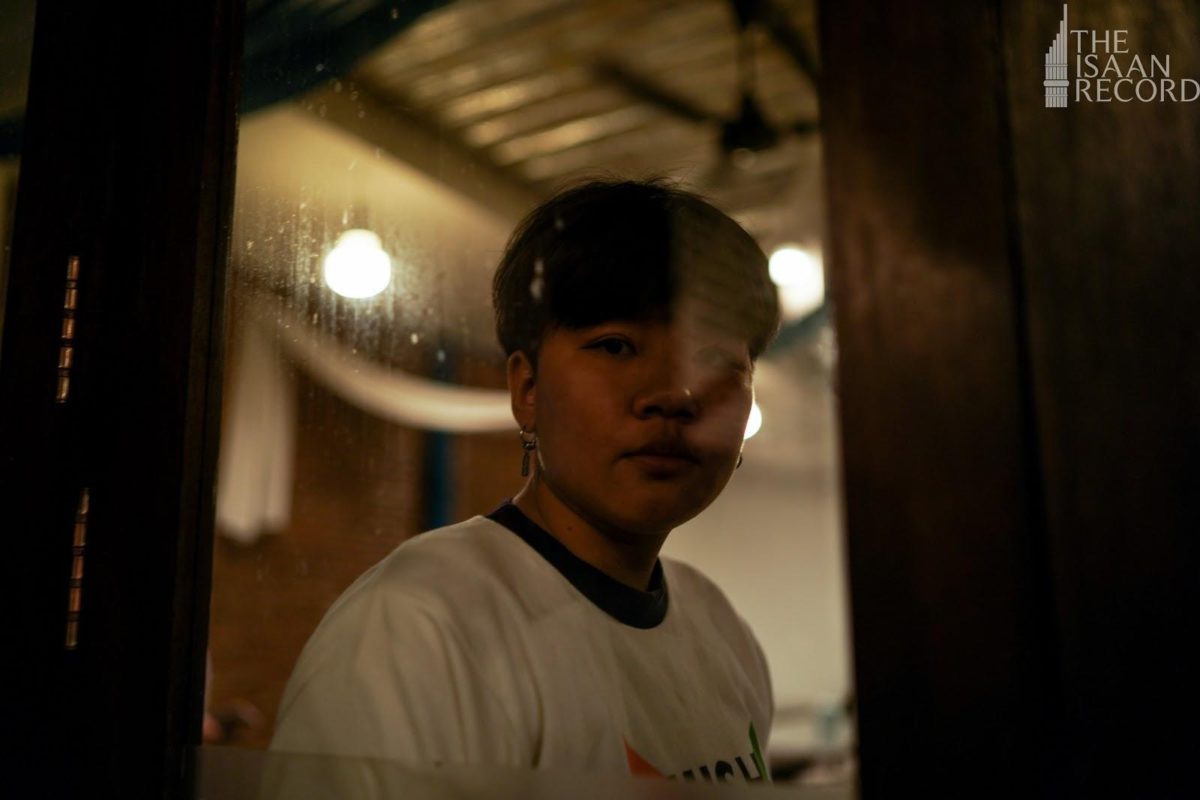
Savitri (last name withheld), student at Faculty of Education, Surin Rajabhat University and an activist of the Surin Youth for Democracy group.
But with the growth of political protest among the youth, Savitri is regaining some hope.
“I want to rebuild the Thai society that adheres to the old traditions,” Savitri says. “Our country should develop to be on international standards. The educational system, in particular, should not be pulled back into conservatism.”
Emblematic of this conservatism are aspects of school that have nothing to do with actual education like uniform regulations involving dress codes, hair color, and hairstyle of students.
These issues have affected Savitri in particular as LGBT. He has repeatedly been bullied and punished by school teachers over the dress code. Savitri identifies as a male although his birth sex is female. He’s chosen to wear sneakers with the female school uniform and keeps his hair short.
The negative experience Savitri has endured in university has spurred him to become a teacher in order to change the outdated educational system.
Phinithi “Phi” Sirikhunakan has had a very different experience at Sisaket Rajabhat University. The university has shown a remarkable tolerance for diversity in terms of gender and politics. Nonetheless, his activism has largely happened off campus.
Phitnithi says his first interest in politics was connected to the Marriage Equality Act which has been pushed by the Future Forward Party (and then continued by its successor, the Move Forward Party). What brought him into membership with the Sisaket’s Had Enough group and into rallies was the violence used by the government to crack down on pro-democracy protesters in Bangkok.
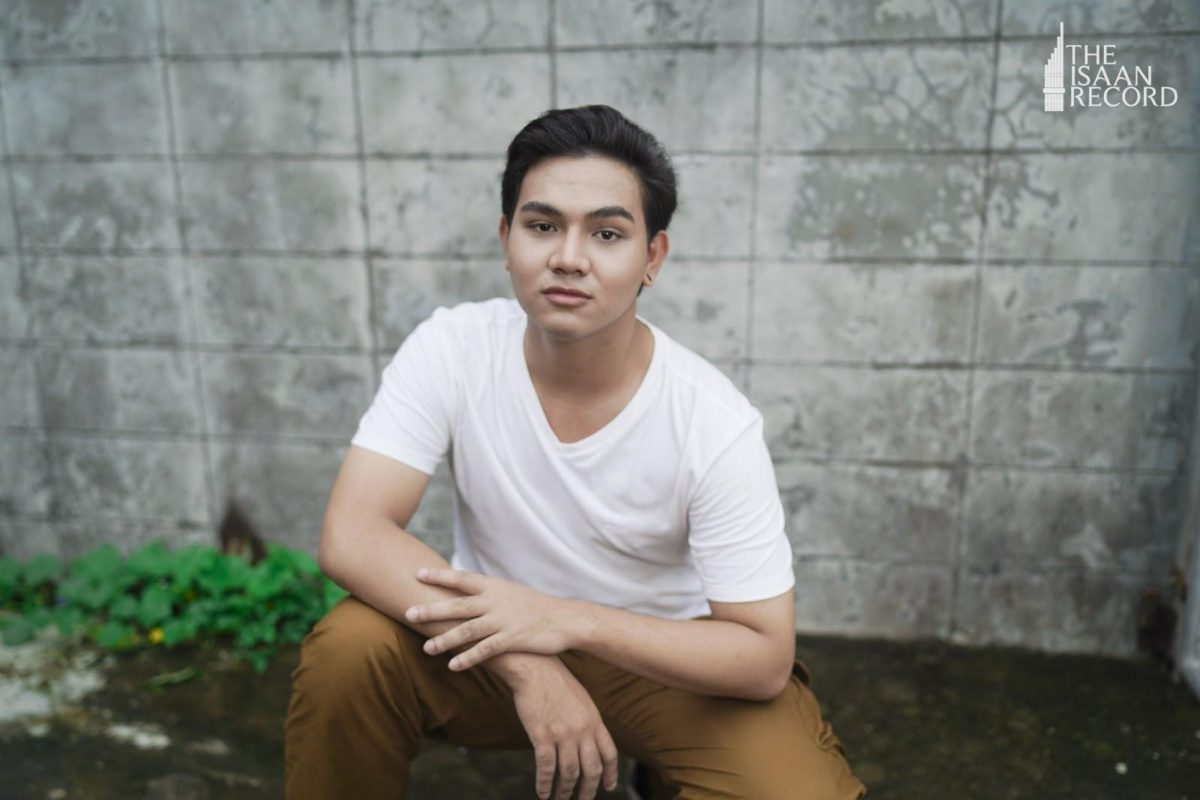
Phinithi Sirikunakan, junior at Sisaket Rajabhat University and member of the political group, “Sisaket’s Had Enough” group.
Ever since, he has become a harsh critic of the current government. He blames in particular Prime Minister Prayut Chan-o-cha who he says has “ruined everything.” Local people have been particularly affected.
To the prime minister he says, “You’ve made everything more expensive. You have made life more difficult to live. Those who live from hand to mouth have had to struggle more to put food on the table.”
Dismissively, he continues, “You don’t have any potential to run this country. You should get out. The military role may suit you, but you aren’t suitable to lead this country.”
Eleven of the twenty provinces in the Northeast host a Rajabhat university. They are considered less prestigious than the larger universities like Khon Kaen and Ubon Ratchathani universities. For whatever reason, this has made these universities as a whole more strict with students, more conservative, and generally less accepting of difference.
For the most part, Rajabhat university administrators have succeeded in squelching political protests. Police harassment and intimidation of those Rajabhat students who have joined protests have been particularly effective.
But there are some Rajabhat universities in Isaan which have been more broadminded, such as in Sisaket, or more begrudgingly open, like in Roi Et.
Rajabhat students as a whole come from more modest backgrounds and their roots has caused them to focus more on issues like education. The government may well fear criticism of the education system as it efficiently reproduces the current inequality in Thai society. As a result, there may be more effort to keep the lid on Rajabhat students.
See our forthcoming stories on the student movement in Sakon Nakhon which shows what Rajabhat students can do with supportive teachers.




